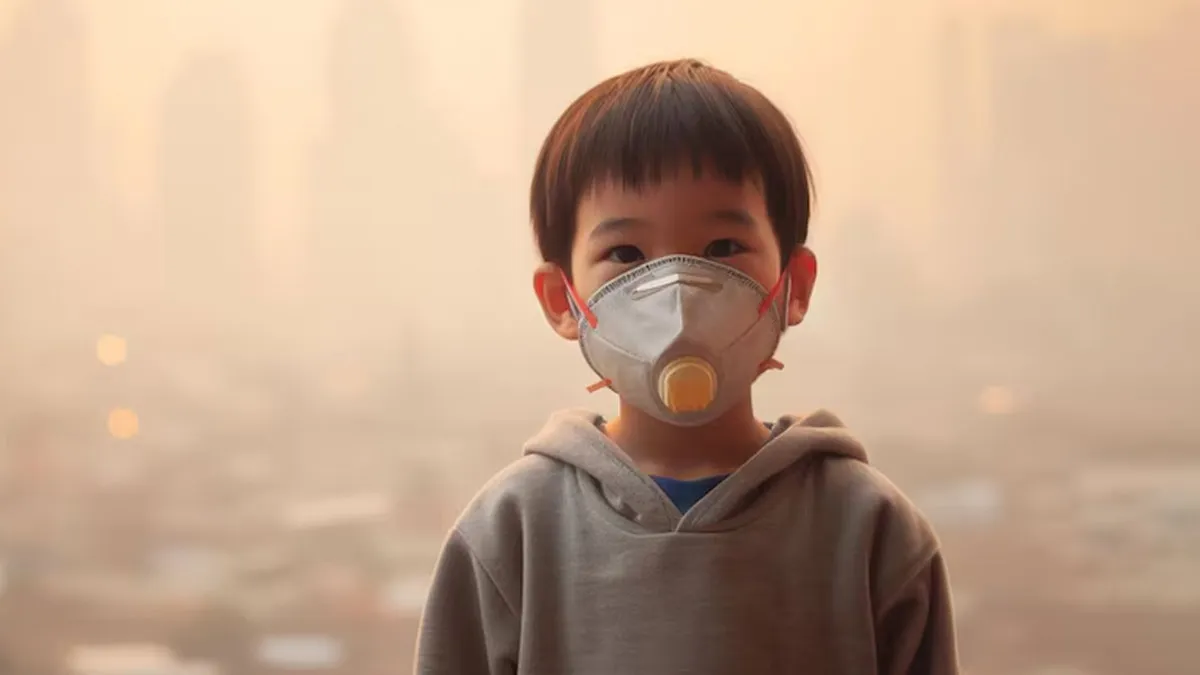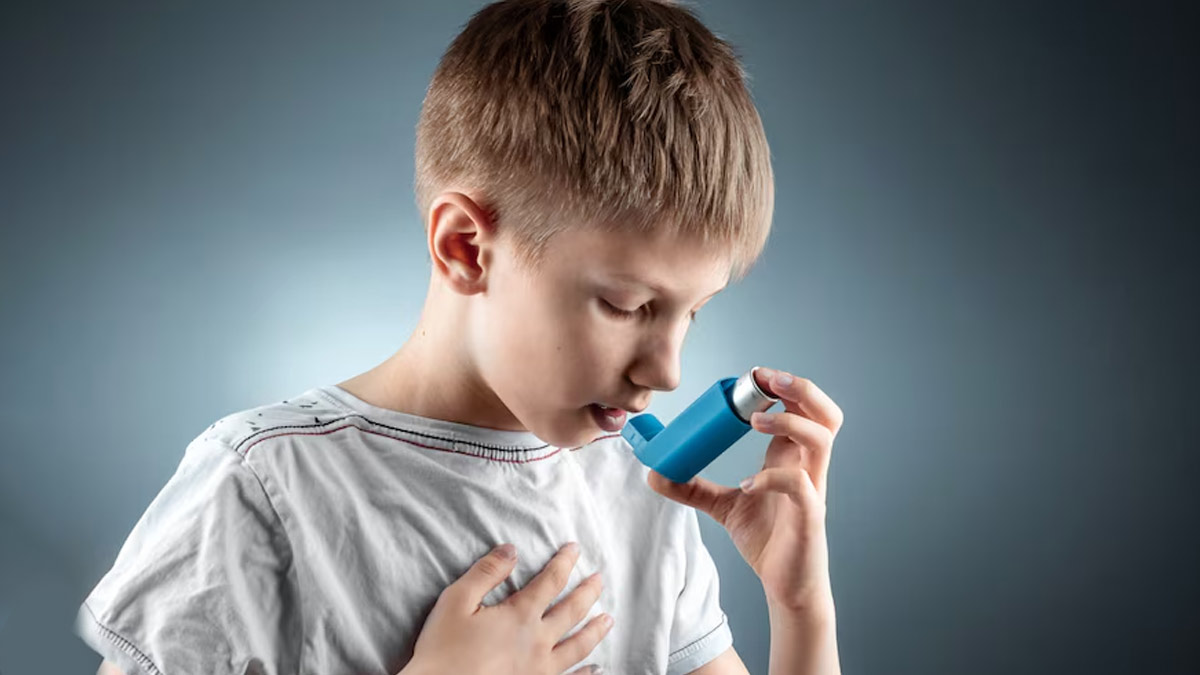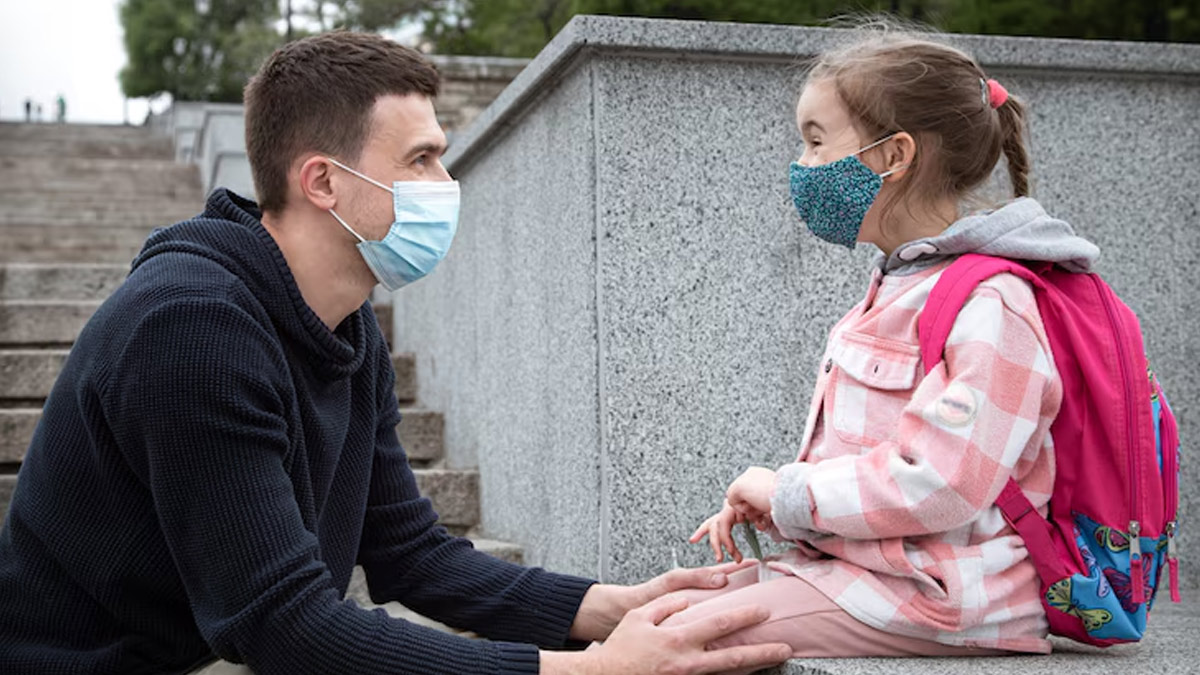
As pollution levels soar, the impact on children's health goes beyond physical illnesses, creeping into aspects of learning and memory. With compromised air quality, especially in urban areas, children’s developing systems make them more susceptible to the harmful effects of pollutants.
Table of Content:-
To understand how inhaling polluted air can affect children’s memory and brain development, OnlyMyHealth team interacted with Dr Abhishek Chopra, Consultant Neonatologist and Paediatrician, Cloudnine Group of Hospitals, New Delhi.
How Poor Air Quality Impacts Brain Development
Dr Chopra explains, "When air quality is poor, children are especially vulnerable to harmful effects due to their developing lungs, immune systems, and brains. Poor air quality levels, especially those high in particulate matter (PM2.5 and PM10), nitrogen dioxide, sulphur dioxide, and carbon monoxide, can seriously impact learning and memory in children." Research shows that exposure to pollutants can lead to cognitive impairments, affecting children’s attention, memory, and even their academic performance.

One of the primary culprits is fine particulate matter (PM2.5), which can reach the brain, causing inflammation and oxidative stress in the hippocampus—a region essential for memory and learning. Studies indicate that children living in highly polluted areas often display reduced cognitive abilities compared to those in cleaner environments. "Prolonged exposure to these harmful elements can hinder a child’s ability to concentrate, retain information, and perform academically," said Dr Chopra.
Also read: Pollution Crisis: How High AQI Levels Impact Pregnancy And Foetal Health, Expert Explains
Short and Long-Term Health Implications
Aside from cognitive development, air quality also has long-term health implications. Poor AQI levels can lead to respiratory issues that inhibit children’s physical activity, indirectly impacting their learning abilities. Dr Chopra warns that long-term exposure to pollutants can lead to persistent respiratory illnesses, asthma, allergies, and even cardiovascular conditions. "Unfortunately, the cognitive delays resulting from exposure to pollution may last into adulthood, impacting lifelong learning and mental health," he says.
Health Issues Linked to Poor AQI

Several health conditions can be exacerbated by high levels of air pollution:
Respiratory Tract Infections: Pollutants inflame the respiratory tract’s mucosal layer, making it susceptible to infections such as pneumonia, which can cause symptoms like fever, coughing, breathing difficulties, and, in some infants, feeding issues. Dr Chopra mentions, "Treatment includes antibacterial or antiviral medication, antipyretics to reduce fever, medications for cough relief, and supplemental oxygen if oxygen levels are low."
Increased Wheezing and Asthma: Air pollution irritates the airways, causing them to narrow and potentially leading to wheezing or even severe breathing difficulty. "Wheezing often results from bronchiolitis or asthma, which causes swelling of small airways and mucus accumulation," Dr Chopra explains. Children may need medications to reduce airway inflammation, along with oxygen therapy or even hospitalisation in severe cases.
Allergic Rhinitis: A common issue affecting about 40% of children, allergic rhinitis leads to sneezing, a runny nose, nasal itching, and congestion, worsened by air pollution. Dr Chopra notes, "Pollution can increase a child’s response to inhaled allergens, intensifying these symptoms."
Also read: How To Take Care Of Your Baby Amid Low AQI And Added Festive Pollution Due To Crackers
What Parents Can Do to Protect Their Children

To mitigate these risks, parents can take several proactive steps:
- Minimise Dust Exposure: Children with asthma or other respiratory sensitivities should stay out of rooms during cleaning or vacuuming to avoid dust inhalation, a common wheeze trigger.
- Use Synthetic Bedding: Opt for synthetic pillows and acrylic duvets instead of feather bedding, which can aggravate allergies.
- Enhance Indoor Air Quality: Invest in air purifiers with HEPA filters to remove allergens and pollutants. Avoid wood fires and vent gas appliances outdoors to keep indoor air clean.
- Avoid High-Traffic Areas: Limit time spent near busy roads or industrial zones, especially during times of heavy traffic, as these areas tend to have higher pollution levels.
- Close Car Windows: When driving, keep windows up and run the car’s air conditioning to reduce pollutant exposure.
- Limit Outdoor Activities During High AQI Levels: Plan outdoor activities for early morning when pollution levels are lower, or choose green, open spaces with cleaner air.
- Celebrate Eco-Friendly: Limit exposure to fireworks and consider eco-friendly options during festivals to reduce respiratory distress.
- Promote Good Hygiene: Encourage frequent handwashing to protect against pollution-aggravated respiratory infections.
- Healthy Diet and Lifestyle: A balanced diet and regular exercise can help reduce the body’s vulnerability to pollution-related illnesses.
"Protecting children from pollution requires not just individual action, but also community efforts and government policies," Dr Chopra stresses. With these precautions, parents can help safeguard their children’s physical health, learning potential, and overall well-being, ensuring they breathe cleaner, safer air.
Also watch this video
How we keep this article up to date:
We work with experts and keep a close eye on the latest in health and wellness. Whenever there is a new research or helpful information, we update our articles with accurate and useful advice.
Current Version